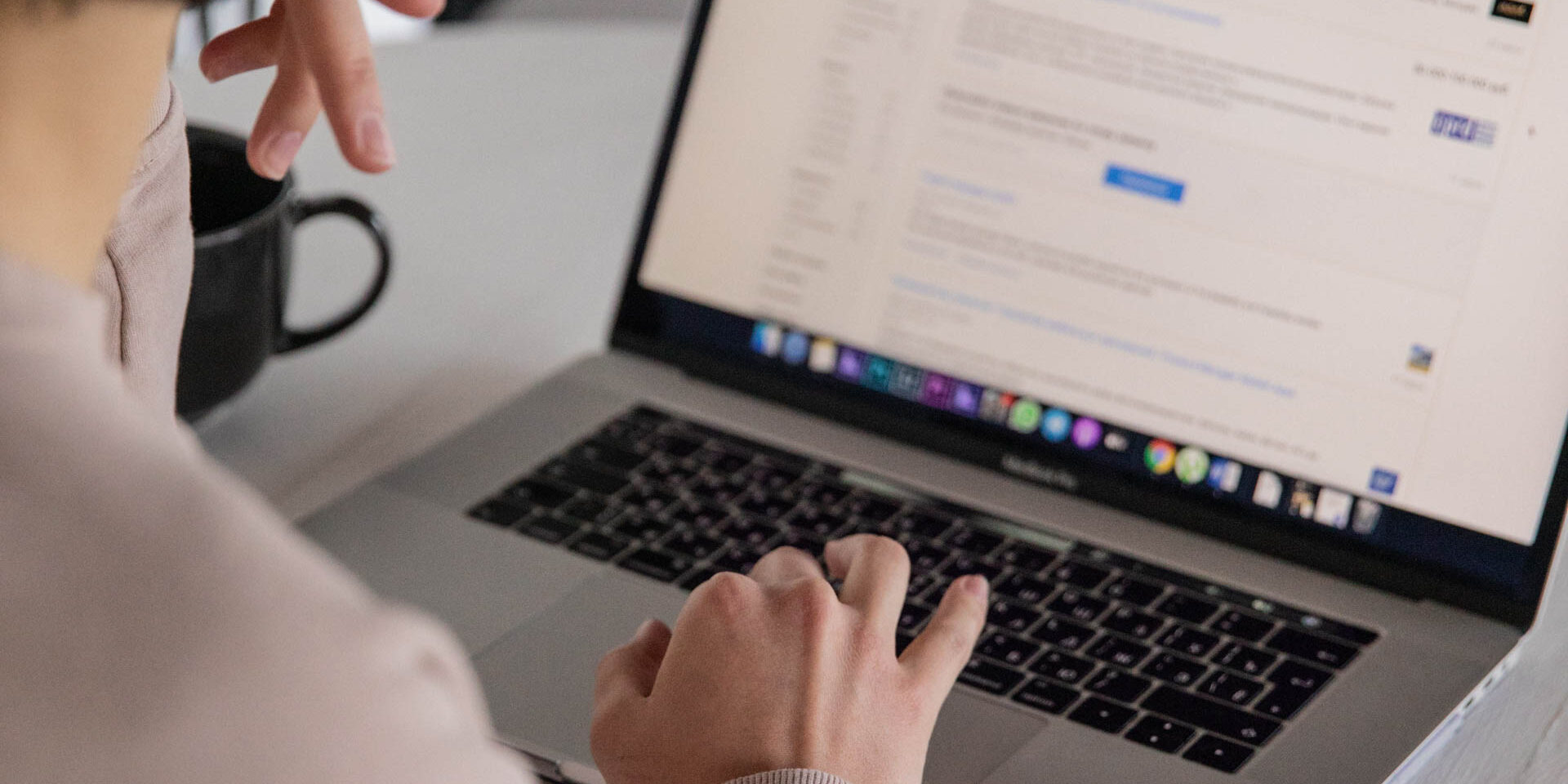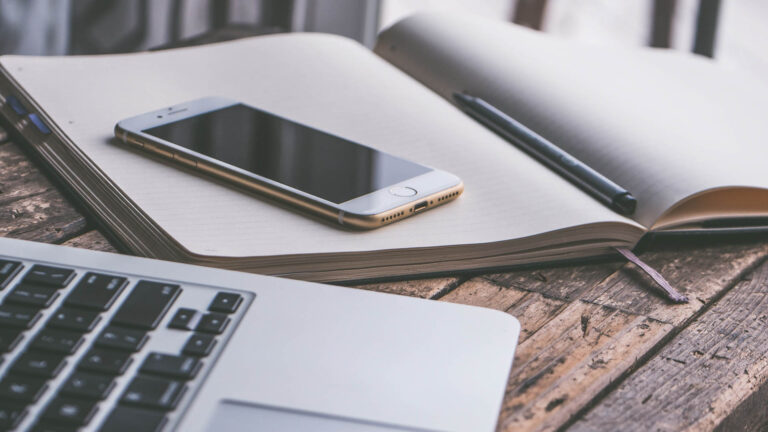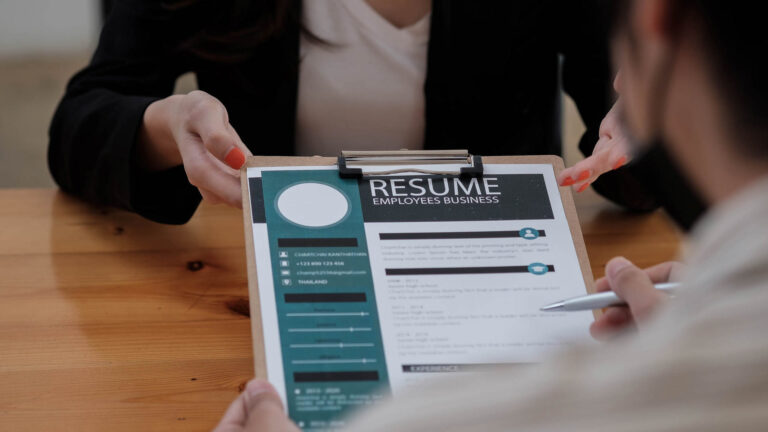As a job seeker, it’s crucial to know that the interview doesn’t end when you leave the room. One of the most overlooked aspects of the job interview process is following up with your interviewer(s) with a thank you note. However, taking the time to write a well-crafted thank you note can give you an edge over other candidates and ultimately land you the job you want.
In this article, we’ll discuss the importance of sending a thank you note after a job interview, the benefits of doing so, and provide tips on how to write a winning job interview thank you note. The overarching theme of this article is to guide you towards writing a thank you note that sets you apart and leaves a lasting positive impression on your interviewer.
So let’s dive in and explore why sending a thank you note is so critical in today’s job market.
Type of Thank You Notes
When it comes to sending a thank you note after a job interview, you might be wondering whether to use email or a handwritten note. Both options have their own advantages and disadvantages, and ultimately, the choice depends on your personal preference and circumstances.
Email vs. Handwritten Notes
Emails are the more modern and convenient option for sending a thank you note. They are quick to compose and send, and you can easily attach any necessary documents or links. Plus, you can track if the recipient has opened your email and read your message.
Pros:
- Fast and easy to write and send.
- Can easily attach any necessary documents or links.
- Trackable to ensure it’s received and read.
- More environmentally friendly than a printed note.
Cons:
- Less personal and memorable than a handwritten note.
- May be perceived as impersonal or insincere.
- Can easily be lost or forgotten in a cluttered inbox.
Handwritten Notes
Handwritten notes have a more personal touch and can leave a lasting impression on the recipient. They show that you put in the extra effort to handwrite and mail the note, which can set you apart from other candidates.
Pros:
- More personal and memorable than an email.
- Shows extra effort and attention to detail.
- Can make a lasting impression and set you apart from other candidates.
Cons:
- Slower and more time-consuming to write and mail.
- Handwriting quality may affect the impression made on the recipient.
- May not be appropriate if you don’t have the recipient’s physical address.
Both email and handwritten notes have their own benefits and drawbacks. It’s important to consider your personal style and the interviewer’s preference before making a decision. However, if you want to make a lasting and personal impression on the interviewer, a handwritten note may be the way to go.
Timing of Sending out Thank You Notes
In order to make a lasting impression and show your appreciation, it’s important to send a thank you note after a job interview. However, it’s not only the content of the note that matters, but also the timing of it. Here are some guidelines for when to send thank you notes after a job interview.
Ideal Time to Send a Thank You Note
The ideal time to send a thank you note is within 24 hours after the interview. This time frame is not too soon that it seems like you are rushing, but it’s also not too late that the interviewer might forget about you. It’s important to strike while the iron is hot, so to speak, and keep your enthusiasm fresh in the interviewer’s mind.
Same-day Thank You Notes
If you have the time and resources, sending a same-day thank you note can be very impressive. This can show the interviewer that you are not only grateful for the opportunity, but also that you are punctual and efficient. A same-day thank you note can be especially effective if the interviewer is making quick decisions or is under tight time constraints.
Next-day Thank You Notes
If you are unable to send a same-day thank you note, don’t worry! A next-day thank you note is still very much appreciated. It’s better to send a next-day thank you note than to not send one at all. However, be aware that the longer you wait to send a note, the less impact it will have. If possible, try to send your thank you note within 24 hours of the interview.
Timing is key when it comes to sending thank you notes after a job interview. Aim to send your thank you note within 24 hours after the interview, but if that’s not possible, a same-day or next-day note is still better than no note at all. By showing your gratitude and enthusiasm in a timely manner, you can impress the interviewer and increase your chances of landing the job.
What to Include in a Thank You Note
If you’ve been invited for a job interview, writing a thank you note afterwards is a great way to show your appreciation and leave a lasting impression. But what should you include in your thank you note to make it stand out? Here are four things to keep in mind:
Gratitude
First and foremost, express your gratitude for the opportunity to interview for the position. Let the hiring manager know that you appreciate their time and consideration in selecting you for an interview. This sets a positive tone for the rest of your note and shows that you are grateful for their interest in you as a candidate.
Remembering Details
In your thank you note, try to reference specific details from the interview that stood out to you or that you found particularly interesting. This shows that you were actively engaged in the conversation and are genuinely interested in the company and the role. For example, you could mention a project or initiative that the company is currently working on, or a specific aspect of the job description that aligns with your skills and experience.
Personalization
It’s always a good idea to tailor your thank you note to the specific company and hiring manager that you interviewed with. This means avoiding generic templates and instead personalizing your message to reflect the conversation you had and the company culture. If you connected with the interviewer on a personal level, you might consider mentioning that as well (e.g. “I really enjoyed hearing about your recent trip to Japan, it sounds like an incredible experience”).
Call to Action
Finally, end your thank you note with a call to action. This could be as simple as expressing your enthusiasm for the position and your interest in moving to the next stage of the hiring process. You could also ask if there is any additional information you can provide or if there is a timeline for making a decision. This shows that you are proactive and eager to move forward.
A winning job interview thank you note should express gratitude, reference specific details from the interview, personalize your message, and end with a call to action. With these tips in mind, you can craft a memorable thank you note that leaves a lasting impression on the hiring manager. Good luck!
Structure of a Thank You Note
When it comes to crafting the perfect thank you note after a job interview, it’s important to structure your message in a way that is clear, concise, and professional. Here are the key elements that should be included in your note:
Greetings
Start your note with a professional greeting that addresses the recipient by name. If you’re unsure about the spelling or pronunciation of their name, double-check before sending the note.
Opening line
The opening line of your note should express gratitude for the opportunity to interview for the job. This sets a positive tone for the rest of the message and shows your appreciation for the interviewer’s time and consideration.
Body
The body of your thank you note should be the main part of your message, where you can elaborate on why you’re a good fit for the position and reiterate your interest in the role. Be sure to highlight specific skills or experiences that you discussed during the interview and how they relate to the job requirements. This is also a good opportunity to address any questions or concerns that may have come up during the interview.
Closing
Wrap up your thank you note with a brief closing statement that reinforces your appreciation for the interviewer’s time and consideration. You might also use this section to reiterate your enthusiasm for the role and your desired next steps.
Sign-off
Finally, be sure to sign off on your note using a professional and appropriate closing phrase. “Sincerely,” “Best regards,” or “Thank you” are all acceptable options.
Writing a Winning Job Interview Thank You Note: What Not to Include
A thank you note after a job interview is an excellent way to leave a lasting impression on the interviewer. However, it’s essential to understand what not to include in your thank you note. Here are some things to avoid when writing your thank you note:
1. Avoid Over-Thanking
While it’s always good to express gratitude, over-thanking can make you seem desperate or insincere. A simple ‘thank you for your time and consideration’ is enough to convey your appreciation.
2. Avoid Being Too Generic
A thank you note that’s too generic is unlikely to make an impression on the interviewer. Use the note as an opportunity to personalize your message and remind the interviewer of some of the highlights of your conversation.
For example, “Thank you for taking the time to discuss the importance of teamwork at your company. As someone who values collaboration, I feel that your values align well with mine.”
3. Avoid Being Too Sales-y
It’s understandable to feel like you were selling yourself during the interview, but your thank you note shouldn’t come across as a sales pitch. Avoid trying to sell yourself further by reiterating your qualifications or achievements.
Instead, focus on thanking the interviewer for their time and expressing your interest in the position. For example, “Thank you for taking the time to meet with me today. I’m excited about the possibility of working with your team and contributing to the company’s success.”
Example Thank You Note with Breakdown
To further illustrate the importance of a winning job interview thank you note, here’s an example of one along with a breakdown of its key elements:
Dear [Interviewer’s name],
Thank you for taking the time to meet with me today about the [Job Title] position at [Company Name]. I was excited to learn more about the role and the company culture, and I appreciate the opportunity to discuss my qualifications with you.
[Personalize the note with a specific highlight from the interview that stood out to you, such as something they said that resonated with you, or a question they asked that you found insightful.]
I also wanted to follow up on my qualifications for the position. [Reiterate your relevant experience and skills, and how they align with the job requirements and company values.]
Thank you again for your time and consideration. If you need any additional information from me, please don’t hesitate to ask. I look forward to hearing from you soon.
Best regards,
[Your Name]
Breakdown:
Greeting
Address the interviewer by their name and thank them for their time.
Gratitude
Express appreciation for the opportunity to interview for the position and learn more about the company.
Personalization
Show that you were paying attention during the interview by referencing something specific that stood out to you.
Qualifications
Reiterate your relevant experience and skills, and highlight how they align with the job requirements and company values.
Closing
Thank the interviewer again for their time and consideration, and offer any additional information they may need. End with a polite closing.
By following this example and breakdown, you can create a winning job interview thank you note that impresses the interviewer and sets you apart from other candidates. Remember to personalize the note and highlight your qualifications, while also expressing gratitude and professionalism throughout. Good luck!
Crafting Personalized Thank You Notes
If you’re looking to write a winning job interview thank you note, crafting a personalized message is crucial. One way to do so is by researching the company beforehand and using that information to tailor your note. Here are some tips on how to do just that.
Importance of Researching the Company
Researching the company you interviewed with shows that you’re not only interested in the job, but also committed to learning more about the company culture and values. Company research can also help you stand out from other candidates because you can use the information you find to address specific questions, concerns, or points of interest in your note.
How to Research
There are a few ways to research a company before writing your thank you note. First, visit the company’s website to learn about their products, services, and mission. You can also read through their blog, social media accounts, and press releases to get a better understanding of their recent achievements, challenges, and initiatives. Job postings, news articles, and employee reviews can also be useful resources.
Using Information to Personalize Your Thank You Note
Once you have gathered enough information, use it to personalize your thank you note. For instance, mention specific details or accomplishments that were discussed during the interview, reference the company culture or values that resonate with you, or mention any shared interests or hobbies. Avoid generic statements and focus on showcasing your enthusiasm and fit for the job.
Crafting a personalized thank you note shows that you’re not only grateful for the opportunity to interview, but also that you’re invested in the company and your potential role. It can make a lasting impression on the interviewer and increase your chances of landing the job. So, take the time to research the company and use the information you find to craft a thank you note that leaves a positive and lasting impression.
Common Mistakes to Avoid
When it comes to writing a winning job interview thank you note, there are a few common mistakes that can undermine the effectiveness of your message. Here are three mistakes to avoid:
Typos and Grammatical Errors
Your job interview thank you note is a reflection of your attention to detail and professionalism. Typos and grammatical errors can make you look careless or uneducated, and can also distract from your message. Be sure to proofread your note carefully before sending it, and consider having a friend or colleague review it as well.
Sending Mass Thank You Notes
Sending a generic thank you note to every person you met during the interview process may seem like a time-saver, but it can actually backfire. Recruiters and hiring managers are likely to compare notes and if they realize they all received the same message, it can make you look insincere and detached. Instead, personalize each note to reflect something unique about your interaction with each person.
Ensuring you send it to the right person
It may sound obvious, but sending your thank you note to the wrong person can be a costly mistake. Not only does it show that you are not paying close attention, but it can also reflect poorly on your communication skills. Before hitting send, double-check that you have the correct email address and that you are sending the note to the right person.
By avoiding these common mistakes, you can maximize the impact of your job interview thank you note and increase your chances of landing the job. Remember to proofread carefully, personalize your message, and double-check your recipient before hitting send. Good luck!
Follow-up After Your Thank You Note
Congratulations! You’ve just aced your job interview and sent a thank you note to the hiring manager. But, wait, your work doesn’t stop there. Follow-up after your thank you note is an essential step that showcases your interest in the job and keeps you at the forefront of the hiring manager’s mind.
Importance of Following Up
Following up after your thank you note demonstrates your professionalism, enthusiasm, and interest in the role. It shows you are proactive and committed to landing the position. A well-timed and well-crafted follow-up can be the key to landing the job.
Moreover, a follow-up opportunity provides you with the last chance to reaffirm your qualifications and clarify any doubts the hiring manager may have about your candidacy. It also provides you with an opportunity to ask any final questions about the position, which can help you make an informed decision about whether the job is a right fit for you.
When to Follow Up
The timing of your follow-up depends on the company’s timeline and the nature of the hiring process. As a general rule of thumb, it is recommended to follow up within 1-2 weeks of your interview. This gives the hiring team enough time to consider your application and make a decision.
If the interviewer gave you a specific timeline during the interview process, that’s a good indication of when to follow up. If they didn’t mention a specific timeline, try to gauge the hiring process’s timeframe and send your follow-up accordingly.
Effective Strategies for Following Up
Now that you know the importance and timing of the follow-up, it’s time to craft an impactful and effective follow-up email. Here are some effective strategies for following up after your thank you note:
Personalize your email: Use the interviewer’s name and reference some specific information about your interview conversation to make your email more personalized.
Be concise and to the point: Keep your email brief and straightforward. Reiterate your interest in the role, highlight your qualifications, and ask your final questions.
Add value: Offer some value to the hiring manager that demonstrates your potential worth to the company. Share some relevant and valuable information about the industry, organization or the job.
Stay polite and professional: Maintain the same level of politeness and professionalism as your thank you note, and avoid coming across as pushy or aggressive.
Stand out from the crowd: Add some visual elements like images, links, or attachments that showcase your skills and talent. Make sure they align with the company’s values, culture, and mission.
A well-timed and well-crafted follow-up email can give you a competitive edge and help you stand out from the pool of candidates. It shows your commitment, enthusiasm, and professionalism, making you a memorable candidate for the hiring team.
Benefits of Writing Thank You Notes Beyond the Job Interview
In addition to successfully following up on a job interview, writing thank you notes can also benefit networking and personal development.
Benefits of Writing Thank You Notes for Networking
Thank you notes are a great way to stay in touch with your professional contacts and network. After attending a networking event, sending a thank you note to the people you met can help you stand out and be memorable. It also allows you to continue the conversation and potentially even set up future meetings or collaborations.
Furthermore, sending thank you notes to mentors, colleagues, and former employers can help strengthen those relationships and potentially lead to new job opportunities or connections. It also shows your appreciation for their support and guidance, which can go a long way in maintaining a positive and supportive network.
Benefits of Writing Thank You Notes for Personal Development
Writing thank you notes can also be a powerful tool for personal development. It forces you to reflect on what you are grateful for and appreciate in your life, both personally and professionally. This type of reflection can lead to a more positive outlook and increase overall well-being.
Moreover, writing thank you notes can improve communication skills and cultivate gratitude in your relationships. Expressing gratitude is a simple yet powerful way to strengthen emotional connections and build trust with others.
Writing thank you notes goes beyond just following up on a job interview. It can benefit your networking efforts and personal growth as well. Taking the time to show appreciation for others can lead to new opportunities, stronger relationships, and a more positive and grateful attitude.



